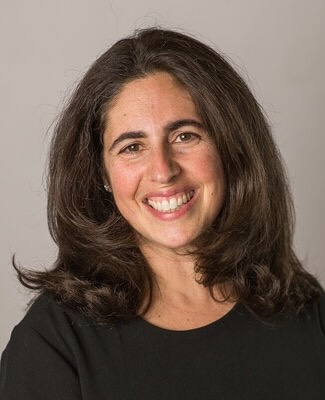Michele Haiken ’96 graduated from Syracuse University in 1996 with a B.A. in English Education and Women’s Studies. She later earned her Ed.M. and Ed.D. in English Education at Teachers College, Columbia University.
With more than 25 years of teaching experience in New York, Haiken has authored five books on literacy, published by the International Society for Technology in Education (ISTE) and the National Council of Teachers of English (NCTE). Her most recent publication, a collaboration between ISTE and NCTE, is Personalized Reading: Digital Tools and Strategies to Support All Learners (2nd Ed.), released in October 2024.
Describe your current roles and their responsibilities.
I continue to teach English Language Arts at a middle school in Westchester, NY, and serve as an Adjunct Professor at Manhattanville College, where I teach courses on adolescent literacy. Beyond teaching, I am currently working on two writing projects, presenting at conferences, leading webinars, and creating educational content for my blog, The Teaching Factor.
How did the School of Education prepare you for your roles?
The School of Education provided me with a strong foundation in teaching and learning. My experience there was not just theoretical—it was deeply rooted in practical application.
Through internships and student teaching each year, I gained both the skills and confidence to enter the classroom immediately after graduation. These hands-on experiences, combined with the guidance of exceptional faculty, laid the groundwork for achieving my personal and professional goals in education.
What current trends do you see in your specialty and how are you addressing them?
Two key trends in education today are the Science of Reading and Writing and the integration of evolving technology like artificial intelligence (AI):
- Science of Reading and Writing: Educators are focusing on research-based practices to support students’ social, emotional, and academic well-being. Staying informed through research, reading, and attending conferences helps me implement these practices effectively.
- Technology and AI: As technology continues to advance, AI platforms have the potential to elevate how we teach writing and critical thinking. However, schools must develop thoughtful acceptable use policies instead of outright banning these tools. Providing educators with time and resources to explore AI’s potential is essential for improving student outcomes.
Which professors stood out for you most as a student at SOE?
Professors such as Susan Hynds, Kathleen Hinchman, and Rosaria Champagne Butterfield made a lasting impact on my teaching philosophy. For example, I still remember the poetry unit I designed in one of Professor Hynds’ classes, which I later adapted for my middle school students.
The attention to detail, feedback, and grounding in best practices I received from these professors helped me develop a student-centered classroom approach that I continue to refine today.
Make a pitch for SOE—why should a prospective student choose the School of Education?
If you’re ready to join a vibrant community of educators, the School of Education is the place to be. Beyond earning a degree, you’ll gain hands-on experience through classroom observations, student teaching, and mentorship opportunities.
Professors are forward-thinking and supportive, preparing you to adapt to the evolving educational landscape. Plus, your Syracuse education will help you stand out in the field with teaching certification and a strong foundation in research-based practices. Just don’t forget to pack warm clothes for those snowy winters!
